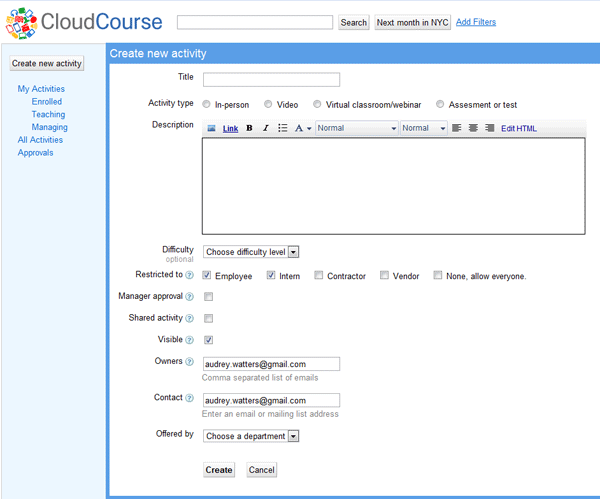Google made a number of announcements in the past week that are of interest to educators: opening Google Wave to the public and extending Google Voice accounts to students. But one announcement that didn’t receive much press was its release of CloudCourse, the new internal learning platform.

Built on Google’s App Engine, CloudCourse is a course-scheduling tool, fully integrated with Google Calendar. CloudCourse also features approval processes, wait list management, as well as room and user profile information and can be further customized to sync the data with other internal systems.
Google hopes that by releasing this under an open-source license that it can “help developers who want to port or build enterprise applications on App Engine.”
According to Irwin Boutoul, a software engineer at Google, “We actually didn’t design this system with universities in mind – we designed it as a course scheduling tool for enterprises. Nevertheless, CloudCourse can certainly help school administrators, who most likely don’t have the time or resources to worry about hardware hosting and dealing with traffic bursts like the ones that occur during class enrollment periods. We’d love to see universities pick up this platform and code additional features on top of it to make it more relevant to the higher education ecosystem. “
While course management is part of what makes a learning tool appealing, CloudCourse does not yet contain all the functionality that would make it an alternative to the other learning management systems available But as Katie Christo, an instructional technologist at the American International School in Chennai, India says – echoing the frustrations that many teachers have with these alternatives – “I would love something from Google. Moodle is still very basic, Blackboard is worse. It’d be nice to have something that is free, cleanly designed, and integrated with other solid programs.”
And as the source code is open, and as more and more schools explore and embrace Google’s Apps for Education, CloudCourse may become another part of the ed-tech arsenal.


















